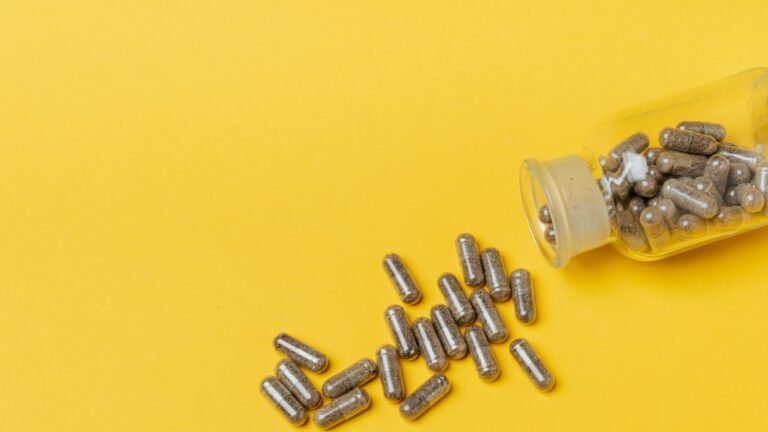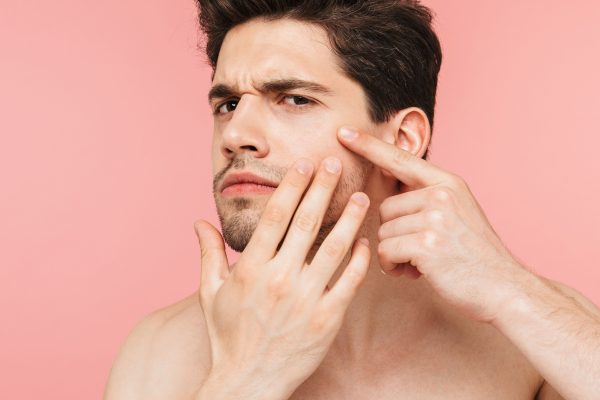Kratom, a tropical plant native to Southeast Asia, has gained popularity in recent years for its potential benefits, including pain relief, increased focus, and relaxation. However, questions often arise about its impact on hormones, particularly testosterone. As testosterone plays a crucial role in male health, understanding whether kratom lowers testosterone levels is essential. Let’s dive deep into this topic to separate fact from fiction.
- What Is Kratom and Why Do Men Use It?
- The Science of Testosterone: Why It Matters for Men
- Does Kratom Lower Testosterone? Breaking Down the Evidence
- Signs That Kratom May Be Affecting Your Testosterone
- How to Mitigate Potential Risks While Using Kratom
- Are There Alternatives to Kratom for Pain or Stress?
- Should You Be Worried About Kratom and Testosterone?
- Final Thoughts: Balance Is Key
- Sources and Links
- FAQs: Does Kratom Lower Testosterone?
- Question: What is kratom?
- Question: Does kratom directly lower testosterone levels?
- Question: What are the signs of low testosterone?
- Question: How can kratom use be balanced to avoid potential hormonal effects?
- Question: Are there alternatives to kratom that don’t affect testosterone?
- Question: Should I stop using kratom if I suspect low testosterone?
What Is Kratom and Why Do Men Use It?
Kratom, derived from the leaves of the Mitragyna speciosa tree, is commonly consumed as a powder, tea, or capsule. Its active compounds, called alkaloids (primarily mitragynine and 7-hydroxymitragynine), interact with the body’s opioid receptors.
Men often use kratom for several reasons:
- Managing Chronic Pain: It provides a natural alternative to pharmaceuticals.
- Enhancing Focus and Productivity: Lower doses are known to boost energy and mental clarity.
- Relieving Anxiety or Stress: Higher doses can promote a sense of calm and relaxation.
- Improving Sleep: Many users report better sleep quality with kratom.
But here’s the kicker: while kratom offers numerous benefits, concerns about its effects on testosterone have emerged. Let’s address this head-on.
The Science of Testosterone: Why It Matters for Men
Testosterone isn’t just about building muscle or boosting libido—it’s fundamental to male health. This hormone regulates:
- Muscle Mass and Strength
- Bone Density
- Energy Levels
- Mood and Mental Health
- Sexual Function and Fertility
Low testosterone can lead to fatigue, decreased libido, mood swings, and even long-term health issues like osteoporosis. Given these stakes, understanding whether kratom could potentially lower testosterone is vital for men who use it regularly.
Does Kratom Lower Testosterone? Breaking Down the Evidence
There isn’t a definitive, large-scale study on kratom’s direct impact on testosterone levels. However, existing research and anecdotal evidence provide some clues.
Potential Mechanisms Behind Kratom’s Effects
- Chronic Use and Stress Response
Kratom interacts with the opioid receptors, which can influence the hypothalamic-pituitary-adrenal (HPA) axis. Chronic use may lead to increased cortisol levels, a stress hormone known to suppress testosterone production. - Liver Strain and Hormone Metabolism
The liver plays a critical role in metabolizing hormones. Prolonged kratom use could theoretically strain the liver, potentially disrupting testosterone regulation. However, this connection remains speculative. - Lifestyle Factors Among Users
Many kratom users rely on it to manage chronic pain or stress—conditions that can independently lower testosterone. Separating these factors from kratom’s direct effects can be challenging.
What Do Studies Say?
Research on kratom’s hormonal effects is limited. A few animal studies suggest that high doses of kratom might suppress testosterone, but these results don’t always translate to humans. Meanwhile, anecdotal reports from regular users vary widely—some claim no noticeable changes, while others report symptoms consistent with low testosterone.
Signs That Kratom May Be Affecting Your Testosterone
If you suspect kratom might be influencing your testosterone levels, watch for these signs:
- Decreased Libido: A notable drop in sexual desire could be an early indicator.
- Fatigue: Persistent tiredness despite adequate rest.
- Mood Changes: Feeling irritable, anxious, or depressed without a clear cause.
- Reduced Muscle Mass: Difficulty maintaining strength or muscle tone.
- Weight Gain: Particularly around the midsection.
If these symptoms sound familiar, it’s worth consulting a healthcare provider and possibly testing your testosterone levels.
How to Mitigate Potential Risks While Using Kratom
The good news? You can take steps to enjoy kratom’s benefits while minimizing potential risks to your testosterone levels.
1. Use Kratom in Moderation
Avoid daily use or excessively high doses. Instead, cycle your kratom intake to give your body time to recover and maintain hormonal balance.
2. Prioritize Sleep
Poor sleep is a surefire way to tank your testosterone. Aim for 7-9 hours of quality sleep each night to support healthy hormone production.
3. Support Liver Health
Incorporate liver-friendly foods like leafy greens, turmeric, and fatty fish into your diet. Staying hydrated and limiting alcohol consumption can also help.
4. Balance Your Diet
A diet rich in zinc, magnesium, and healthy fats is crucial for testosterone production. Focus on whole foods like eggs, nuts, seeds, lean meats, and avocados.
5. Stay Active
Regular strength training and high-intensity interval training (HIIT) are proven ways to boost testosterone levels. Don’t forget to include rest days for recovery.
6. Manage Stress
Chronic stress elevates cortisol, which can suppress testosterone. Incorporate stress-relief practices like meditation, deep breathing, or light cardio.
Are There Alternatives to Kratom for Pain or Stress?
If you’re concerned about kratom’s potential impact on testosterone, consider exploring alternative remedies:
- Ashwagandha: An adaptogen known to lower cortisol and boost testosterone naturally.
- Turmeric: Its anti-inflammatory properties make it a great option for pain management.
- CBD: A non-psychoactive compound from cannabis that offers relaxation and pain relief without hormonal interference.
These alternatives may help you achieve similar benefits without the potential risks to your hormonal balance.
Should You Be Worried About Kratom and Testosterone?
The relationship between kratom and testosterone isn’t straightforward. While there’s no conclusive evidence that occasional or moderate use will significantly impact testosterone levels, chronic or high-dose use might carry risks. The key is balance.
If you enjoy kratom and don’t notice symptoms of low testosterone, you’re likely in the clear. However, if you’re experiencing concerning changes in your energy, mood, or libido, it’s worth reassessing your kratom use and consulting a healthcare professional.
Final Thoughts: Balance Is Key
Kratom can be a valuable tool for managing pain, stress, and other challenges. But like anything in life, moderation is critical. Stay informed, listen to your body, and make choices that align with your overall health goals. And hey, if you’re ever in doubt, don’t hesitate to talk to a pro—it’s your health, after all.
Sources and Links
For further reading and detailed insights, here are some reputable sources related to kratom and testosterone:
- Kratom and Hormonal Effects
- National Center for Biotechnology Information (NCBI): Exploring the Pharmacology of Kratom
- ResearchGate: Kratom and Its Potential Hormonal Impact
- Testosterone and Male Health
- Mayo Clinic: Testosterone: What It Does and Why It’s Important
- Healthline: Symptoms and Causes of Low Testosterone
- Lifestyle and Hormonal Health
- Harvard Health: Foods That Boost Testosterone
- WebMD: The Role of Exercise in Hormonal Balance
- Alternatives to Kratom
- Verywell Mind: CBD as a Stress-Relief Alternative
- Journal of Ethnopharmacology: Ashwagandha and Hormonal Benefits
- Kratom Safety and Usage Guidelines
- American Kratom Association: Kratom Education Resources
- Drugs.com: Kratom: Uses, Effects, and Safety
(Note: Ensure to consult verified and peer-reviewed resources for the most accurate and updated information.)
FAQs: Does Kratom Lower Testosterone?
Question: What is kratom?
Kratom is a plant native to Southeast Asia, scientifically known as Mitragyna speciosa. Its leaves are used for their stimulating and sedative effects, depending on the dosage, and it is often consumed as a powder, tea, or capsule.
Question: Does kratom directly lower testosterone levels?
There is no conclusive evidence that kratom directly lowers testosterone levels. However, chronic or high-dose use may influence hormonal balance through indirect mechanisms like increased stress or liver strain.
Question: What are the signs of low testosterone?
Signs of low testosterone include decreased libido, fatigue, mood changes, reduced muscle mass, and weight gain. If you experience these symptoms, consult a healthcare professional.
Question: How can kratom use be balanced to avoid potential hormonal effects?
To minimize potential risks, use kratom in moderation, maintain a healthy lifestyle with a balanced diet, regular exercise, and adequate sleep, and cycle your usage to prevent dependency.
Question: Are there alternatives to kratom that don’t affect testosterone?
Yes, alternatives like ashwagandha, turmeric, and CBD can offer stress relief, pain management, and hormonal support without impacting testosterone levels significantly.
Question: Should I stop using kratom if I suspect low testosterone?
If you suspect low testosterone and believe kratom may be a factor, it’s advisable to consult a healthcare provider. They can guide you on testing and alternative approaches to address your concerns.
(Disclaimer: This article is for informational purposes only and should not replace medical advice. Always consult a qualified healthcare professional regarding your health concerns.)





